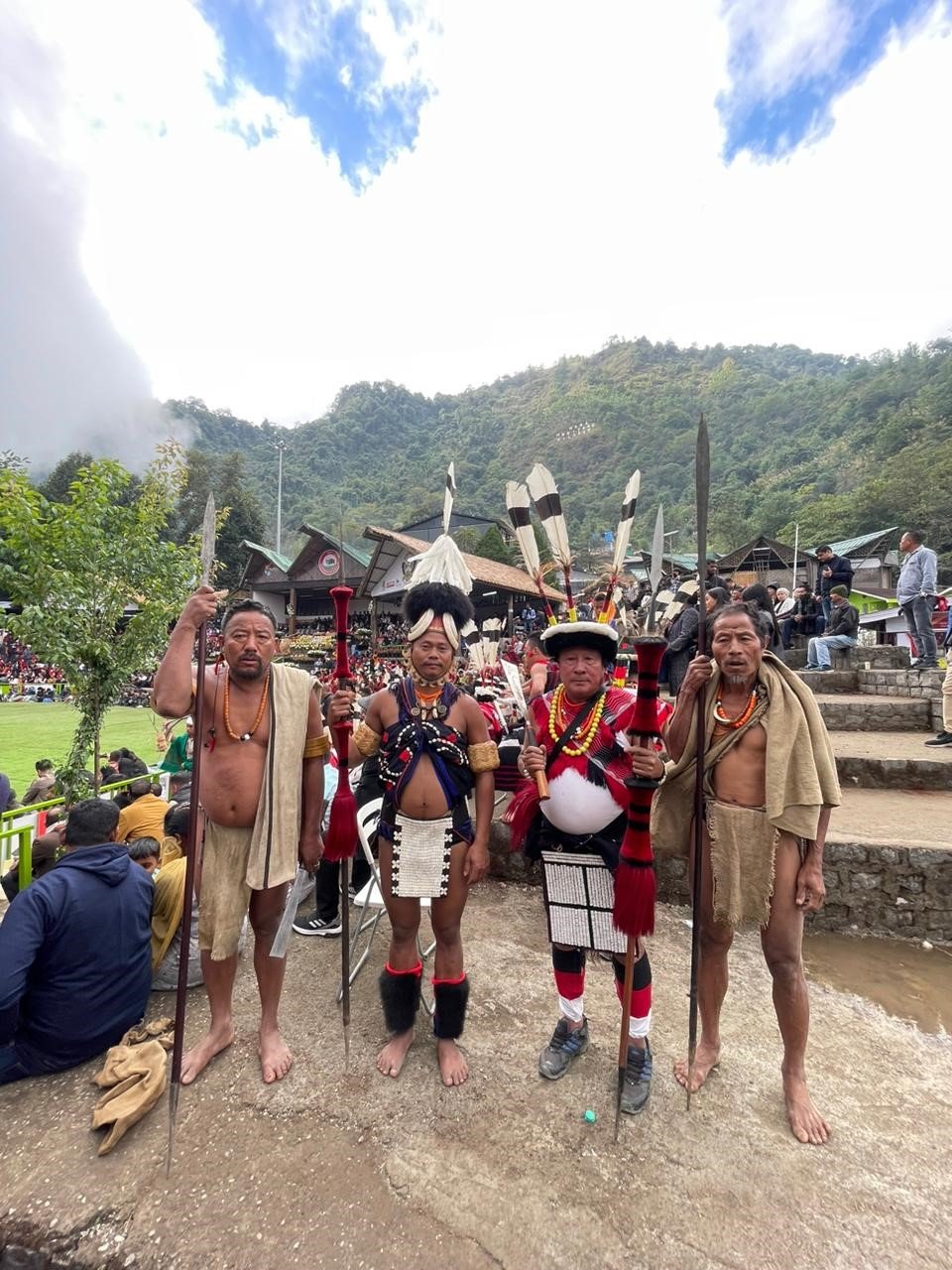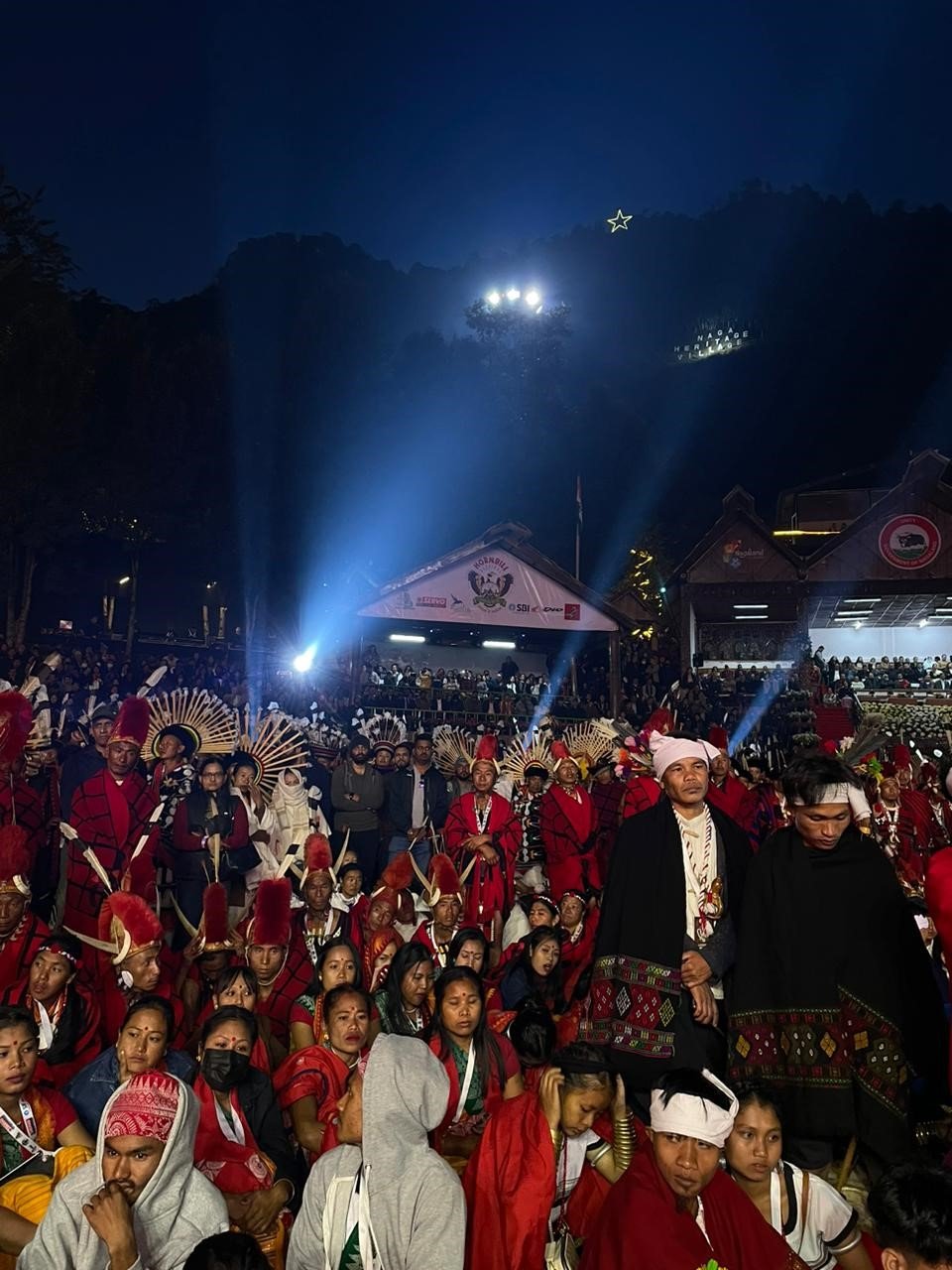“When it comes to Hornbill Festival, we have always had two very distinct sides or points of view. For the cheerleaders, and there are some loud ones, the festival has almost taken the form of a manifesto. It’s the product through which brand Nagaland is sold, or at least that’s the ongoing attempt,” says Temjen Anichar, Assistant Editor at Nagaland Page.
The other distinct side is that of the people who, according to Anichar, constitutes the soul of the Festival. Here, Anichar instances Nagaland Tribune’s story on December 9 (The journey of the Dew people to Hornbill Festival 2023 ), where it reported the arduous 300km journey of the Tikhir people, like many other tribes, to Kohima to put on a show for this year’s Hornbill Festival.
“The people who constitute the soul of Hornbill Festival continues to languish in the outskirts of whatever payoff the festival is achieving,” remarks the journalist, adding, “The journey of the Dew People is the story of Nagaland, not the curated exoticism on display at Kisama for ten days.”
With the Hornbill Festival completing the 24th edition this year, and celebrating a quarter of a century in the next year, Anichar calls attention to the amount of investments made in that period of time. “As payoff, there could be volumes of data on visitors attracted, entrepreneurs aided, musicians and writers promoted, artisans elevated, etc.—what they love to sell as soft power. So it makes us wonder and question: are the dividends of Hornbill Festival, if any, reaching those whose breath has been sustaining the festival thus far?” questions Anichar.

Resonating with Anichar’s argument, Vide Yhokha, a private college teacher posits, “The very festival of the Nagas that has extended its hands and opened its arms to the non-naga and foreign tourists and global collaborations unconditionally should not take place at the expense of marginalisation of its Indigenous population.”
While acknowledging the growing popularity of the Festival which has also generated new means of revenue generation, Yhokha also expressed concern over the “compromising with originality of culture, a culture which is already adulterated.”
For Isaac Nka, a Naga research scholar at Jawaharlal Nehru University (JNU), the 2023 Hornbill Festival has been one of the best “in terms of how it was managed and executed”. However, the scholar also highlights a few pointers such as the need to invite Nagas from other states as guests or performers including Nagas from Myanmar. And also invite northeastern states as guests to be part of the Hornbill Festival. “We have seen their participation but I believe this has to be included every year since this connection will widen the State’s engagement with its neighbors,” suggests Nka.
Another pointer, is the aspect of inclusivity especially in the context of children. “I believe this grand Festival is a place where many children are introduced to indigenous culture and to make this inclusive the organizers can include more children performers and include their participation in dance, games, etc. This year’s participation of children from Mon was something spectacular,” suggests the research scholar.
Download Nagaland Tribune app on Google Play

“Hornbill festival as far as I see is an opportunist festival. One could hardly find route to cultural practices in celebrating hornbill festival although its main theme is to preserve the rich heritage. Hornbill festival has become more like puppets to visitors, where the rich culture are demonstrated for entertainment,” expresses a Kohima citizen. The citizen also highlighted the other concerns such as increasing substance abuse especially during the festival. Another also pointed out the need for monitoring and regulation of taxi fares and proper management of traffic.
A crucial concern is whether the decisions and initiatives of the festival are relevant for the masses. While the festival has gained much global attention, Yhokha reflected that the festival should not overshadow the needs of the common Naga people.
“A Naga festival as popular as this should not be a reproduction of the elite ideas masked in indigeneity and benefitting the capitalistic needs of a few,” views Yhokha.

“After ten days, they pack up luggage and return to their villages. As someone who grew up in the village, I know that most of the villagers are trying to escape the very life so exotically assembled and put on display for the tourists’ pleasure,” expresses Anichar.







